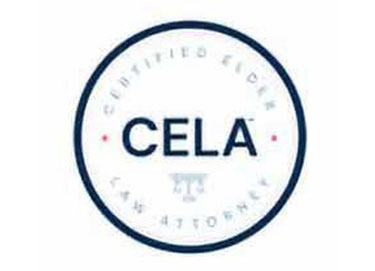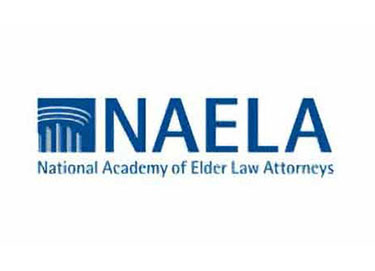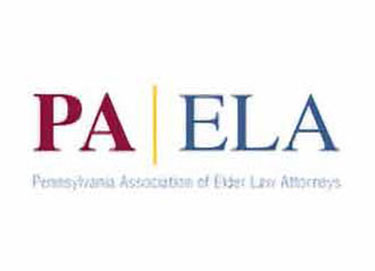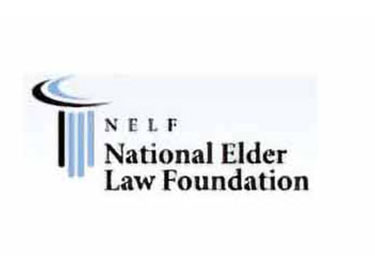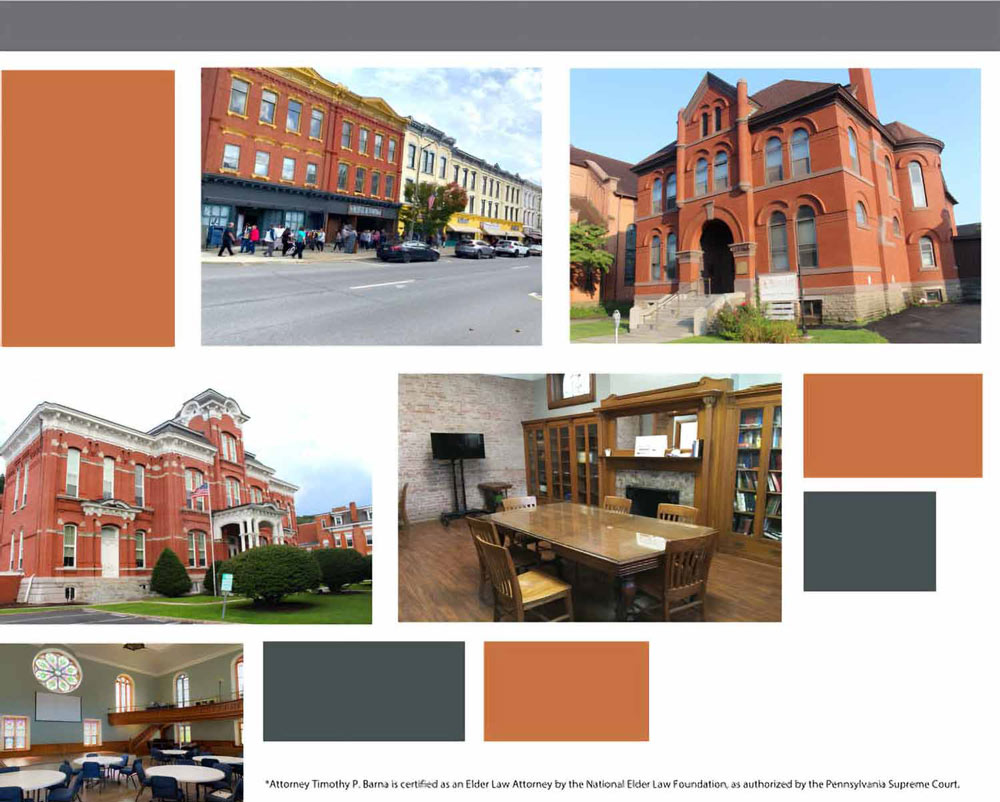Elder Law FAQ: Get Answers To Your Questions
Elder law is a broad area that covers many aspects of growing old. At Barna Law, we have devoted our practice to elder law and related areas since 1971. Our attorneys understand Pennsylvania elder law inside and out. We help people throughout the Honesdale area navigate the many legal concerns that arise in life’s later years.
Below are answers to common questions about elder law. Please contact our attorneys for guidance on your situation.
My parent is entering a nursing home. Will the nursing home immediately take my parent’s home and investments?
When entering a nursing home, the nursing home does not immediately seek to claim any assets from a resident beyond its regular monthly payment. Most nursing homes in our area cost between $9,000 and $13,000 a month, and assets will be depleted by these monthly bills; however, it is important to know that there are many ways to protect one’s home and investments for loved ones while still qualifying for the State to pay the majority of one’s nursing home bill instead. To learn more, contact Barna Law and request to attend one of our free workshops on Nursing Home Asset Preservation Strategies.
I’m healthy but concerned that I will lose my savings if I need to go to a nursing home. What should I do now?
There are several things you can do to prepare for the possibility of long-term care. The first step is creating a Power of Attorney so that, if needed, your loved ones can act on your behalf. If you already have a Power of Attorney, it is also critically important to review this with your attorney to make sure it has the language needed to protect your assets in the event you need long-term care. Not all Powers of Attorney are equal, and we see many Power of Attorney documents that restrict our ability to help our clients protect assets for their loved one. After creating a Power of Attorney that authorizes asset protection strategies, you can evaluate whether an Asset Protection Trust is the right fit for you and your family to help increase the amount of assets that can be protected, while still maintaining a level of control over those assets while you are alive. We counsel clients on these issues every day, and we are happy to review your options with you.
My parent might need to go to a nursing home. They have been very generous and gave money to several people and charities. Is this an issue?
Generosity does not impact eligibility for a nursing home, but it could impact how the nursing home is paid. We assist individuals and families with qualifying for Medicaid to pay for long-term care. Gifting money and assets in the last five years could prevent someone from receiving Medicaid for several months; however, we regularly prepare plans for clients to reduce the consequences of past gifts, while also evaluating if we can assist the client with properly protecting additional assets. If you think that a nursing home might be needed soon, it is best to discuss the situation with a knowledgeable Certified Elder Law Attorney to prevent problems, protect assets, and to determine a plan of action.
Nursing homes are expensive. I can’t afford to go to one without losing my savings. What should I do?
Nursing home costs can be overwhelming, but we focus on helping make long-term care affordable while protecting your assets and family. We work to help you qualify for benefits you are entitled to so that you do not lose your life savings and home. While every case is different, we can often protect 100% of the value of assets for a healthy spouse. When protecting assets for children or other loved ones, we can typically protect 50%-70% of the value of assets. This type of planning can be used to protect your spouse and children from being responsible for nursing home bills, while still ensuring you receive the care you need.
Do I need a trust? What kind?
Trusts can be an essential tool for protecting your assets and interests. There are many different types of trusts that can be used for many different purposes. Many of our clients utilize Asset Protection Trusts to protect assets in the event they need a nursing home in the future. These types of Trusts can protect assets while also providing the person who created it with a certain level of control throughout his/her lifetime. We also assist clients with creating Supplemental Needs Trusts to protect assets for a loved one receiving disability benefits, while not disrupting those benefits for the disabled person. Other clients utilize Revocable Living Trusts to avoid probate proceedings after death. Whether you’re concerned about needing nursing home care, protecting a disabled child, avoiding probate, or another issue, a trust might serve you well. We can provide you with options based on your specific interests and wishes.
Should I transfer my home to my kids?
Transferring assets out of one’s name can be a means of protecting your home from nursing home or other end-of-life related risks; however, it’s important to know the pros and cons of doing so. Transferring an asset to another can expose that asset to risk in the event the recipient has their own catastrophic event, such as death, divorce, bankruptcy, or a lawsuit. These risks have to be properly considered and evaluated. People concerned about these risks who still want to protect their home or other assets often elect to transfer a portion of their assets to an Asset Protection Trust. This Trust can still protect the home or other asset, while also protecting it in the event the beneficiary goes through their own catastrophic event (i.e. death, divorce, bankruptcy, lawsuit, etc.). To learn more about the various ways you can protect assets, contact our office for an appointment or to sign up for one of our free workshops on Nursing Home Asset Preservation Strategies.
Why do I need to know about Medicaid?
Medicaid is important for seniors or family members that are concerned about the possible need for a nursing home. With costs rising every year, long-term care is largely unaffordable. Medicaid comes as an alternative to paying privately and possibly losing your savings. Our office has worked with many families to help qualify their loved ones for Medicaid, while also protecting some of their assets, such as the home and investments for their spouse, children, or other loved ones. If you or a loved one needs to go to a nursing home or are worried about going to one in the future, contact our office for a consultation to discuss your medical and financial situation or contact us to sign up for one of our free workshops on Nursing Home Asset Preservation Planning Strategies.
What is covered at the Free Asset Preservation Workshops?
There are several topics covered at these free workshops. Attorney Tim Barna discusses the need for specific language in your power of attorney, the benefits of trusts, qualifying for Medicaid if a loved one is in a nursing home, protecting your home, and much more. Even if you are looking for a consultation, it is usually best to attend a workshop first. A lot of information is presented, so some people even attend multiple sessions. There is no charge or expectations if you attend.
My loved one is already in a nursing home. Is it too late to protect remaining assets?
In most cases, no! Every case is unique, but even if your loved one is already in a nursing home, we can often still save a majority of the assets that remain and haven’t been used to pay for the nursing home care. We have worked with several families that did not know they could protect their assets once someone was already in a nursing home. On some occasions, people have contacted us years after the loved one originally entered the nursing facility, and we were still able to protect a majority of the assets. To learn more, contact our office or call us to reserve a spot at one of our free workshops on Nursing Home Asset Preservation Strategies.
I have Medicare and supplemental health insurance that covers all of my bills. Why would I need Medicaid?
While Medicare and supplemental health insurance often cover most everyday medical expenses, they only cover long-term-care costs in a limited form. Supplemental health insurance and Medicare may not cover any portion of nursing-home costs, or they may pay for up to 100 days of coverage, but typically not any more than that. Furthermore, many people who receive some Medicare coverage find out that it will end much earlier than 100 days if the person is determined to not be progressing in their rehabilitative care.
I’ve heard about a spend-down, but I don’t know what that means. Why would I need a spend-down?
Medicaid Long Term Care (“Medicaid LTC”) has both a health and a financial component. If a person’s assets exceed the limits allowed by Medicaid, those assets will either need to be spent down or restructured before Medicaid LTC benefits will begin. How a person elects to “spend-down” is critical, as there are strategic ways of achieving Medicaid LTC eligibility while still protecting many of your assets for your loved ones.
Talk To Our Team About Your Questions
We are here to answer your questions and address your concerns. Contact our elder law firm in Honesdale at 570-559-5658. You can also send us a message online.


